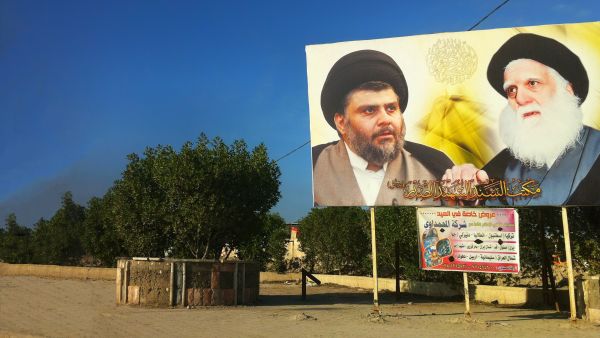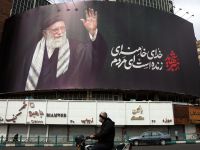The ongoing struggle in the Iraqi parliament to form a new government could suggest an end to the strict sectarian politics initiated after the U.S. invasion. Muqtada al-Sadr, a Shia politician and leader of the Sadrist Movement, is pushing for a majority government despite attempts to retain power by Iraq’s political elite.
The complicated agreements on the sharing of powers, known as Muhasasa Tai’fiya (sectarian apportionment), organizes offices of state along sectarian lines. However, the influence of the Sadrist movement following their success during the October 2021 elections means there is a possibility, despite the efforts of opposing politicians, that the sectarian structure is coming apart.
The political uncertainty inside parliament has been matched by violence in the country. On Tuesday night, two rockets were fired at the home of Iraq’s speaker of parliament. The attacks, which left Mohammed al-Halbussi unhurt, resulted in two children in hospital and came shortly after Iraq's top court confirmed al-Halbussi as speaker.
Earlier this month, two bomb attacks in Baghdad targeted banks associated with Kurdish politicians, leaving two people injured.
Following the U.S. invasion, institutions were put in place that cemented power in the hands of a small number of elites from different ethnic and religious groups. Ostensibly, this was to avoid further violence. Demonstrations in October 2019 opposed the system, insisting that it led to corruption.
The Thawrat Tishreen (October Revolution) was successful in drawing attention to corruption inside Iraqi politics and led to the downfall of Prime Minister Adel Abdul Mahdi. Nevertheless, it was brutally suppressed by state violence and led to the deaths of over 600 protestors.
Before the protests, Iraqi votes would bear little relation to the coalition government that would eventually run the country. Agreements across sectarian lines took importance over democratic representation.
After the demonstrations, a law was adopted in November 2020 that changed the seat allocation from a province-based to a district-based system. It also provided greater transparency for voters and guaranteed a certain amount of parliamentary representatives for women.
In the October 2021 election, Muqtada al-Sadr’s Sadrist Movement won 73 seats, followed by Mohamed Al-Halbousi’s Progress Party with 37 votes, Nouri al-Maliki’s State of Law Coalition with 33, and Masoud Barzani’s Kurdistan Democratic Party (KDP) with 31 votes. Fatah Alliance, an umbrella group of militias whose leader, Hadi al-Amiri, was backed by Iran, fell from 48 parliamentary seats in 2018 to 15.
“Al-Sadr didn’t increase the voter base by much in the last election,” Lahib Higel, Senior Analyst at the International Crisis Group, told Al Bawaba. “He won by such a broad margin because of the new election law and because he organized his constituents better than his rivals.
“He benefited from having one party and not being part of an alliance. Before, the party list system meant that the biggest winning party could elevate candidates that had not won as many votes on their own accord.
“Sadr fielded candidates in a way that made sure they did not compete with each other within the same district and thereby splitting the vote, which is what his rivals did. For example the Fateh alliance that consists of several parties fielded too many candidates and then essentially none of them got a sufficient amount of votes.”
With support amongst Iraq’s Shia working class, Sadr campaigned with a position that divorced Iraq from the influence of outside powers: “No Eastern, No Western“ remains his slogan today.
Sadr has urged Iraqis to back national forces. "Today, there is no place for sectarianism or ethnicity, but a national majority government where the Shias will defend the rights of minorities, the Sunnis and Kurds," he tweeted.
"There is no room for corruption, all sects shall be supportive to reform," he added.
According to Lahib, Sadr might adopt some policies to distinguish his party from the previous government. “If we take one example, which is the devaluation of the dinar. Most parties went to elections saying they wanted to reverse the decision, which is a populist thing to say because it impacts the average Iraqi, but it is something the Iraqi economy needs.
“Sadr might not jump to reverse it first thing but I can imagine it’ll be something he does, because of criticism from the opposition.”
But violence in recent weeks suggests that a transition to a majority government could be bloody.










